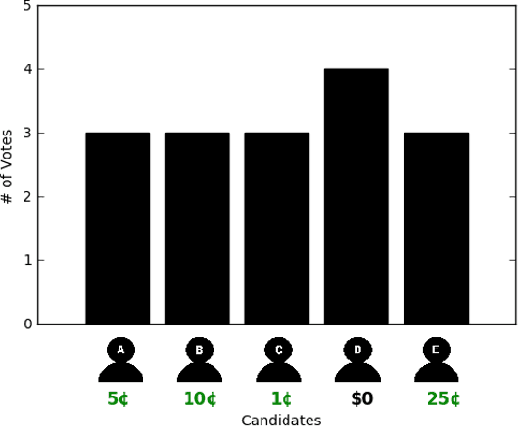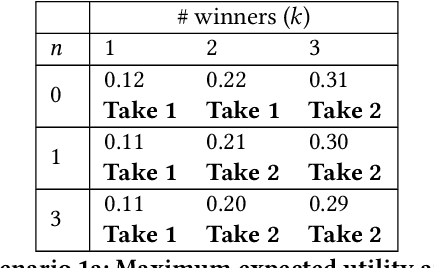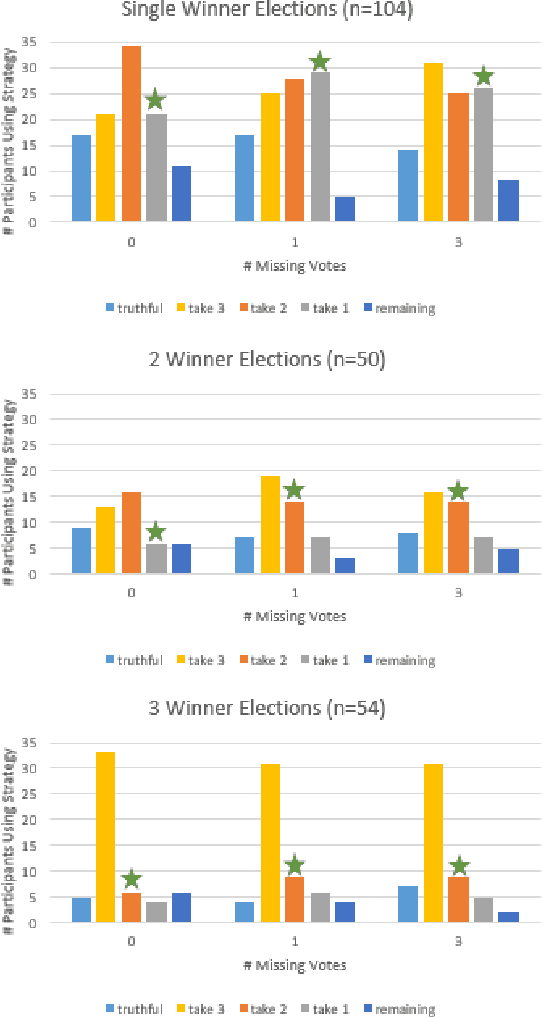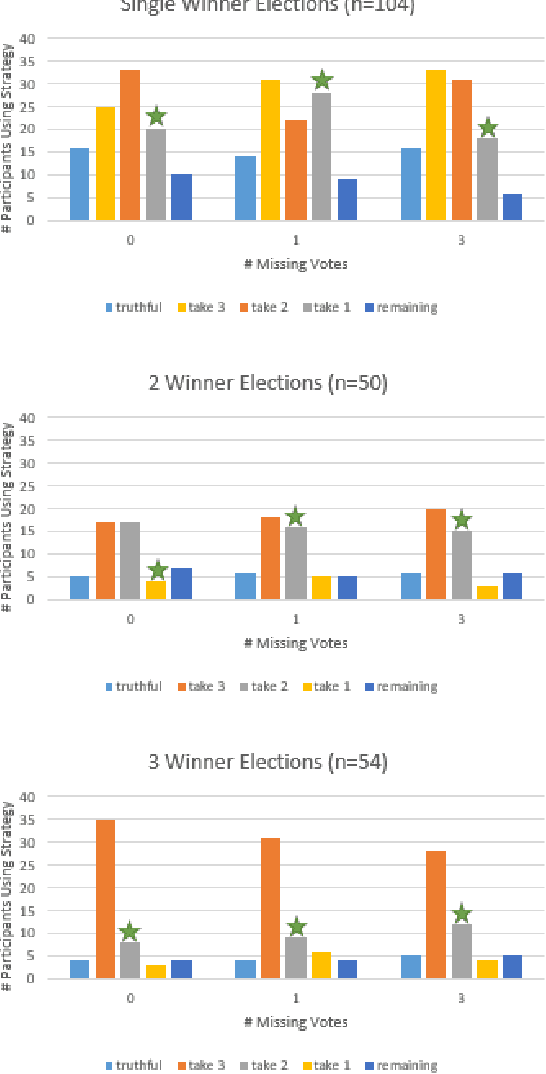Jason L. Harman
Multi-Criteria Comparison as a Method of Advancing Knowledge-Guided Machine Learning
Mar 18, 2024Abstract:This paper describes a generalizable model evaluation method that can be adapted to evaluate AI/ML models across multiple criteria including core scientific principles and more practical outcomes. Emerging from prediction competitions in Psychology and Decision Science, the method evaluates a group of candidate models of varying type and structure across multiple scientific, theoretic, and practical criteria. Ordinal ranking of criteria scores are evaluated using voting rules from the field of computational social choice and allow the comparison of divergent measures and types of models in a holistic evaluation. Additional advantages and applications are discussed.
Heuristic Strategies in Uncertain Approval Voting Environments
Nov 29, 2019



Abstract:In many collective decision making situations, agents vote to choose an alternative that best represents the preferences of the group. Agents may manipulate the vote to achieve a better outcome by voting in a way that does not reflect their true preferences. In real world voting scenarios, people often do not have complete information about other voter preferences and it can be computationally complex to identify a strategy that will maximize their expected utility. In such situations, it is often assumed that voters will vote truthfully rather than expending the effort to strategize. However, being truthful is just one possible heuristic that may be used. In this paper, we examine the effectiveness of heuristics in single winner and multi-winner approval voting scenarios with missing votes. In particular, we look at heuristics where a voter ignores information about other voting profiles and makes their decisions based solely on how much they like each candidate. In a behavioral experiment, we show that people vote truthfully in some situations and prioritize high utility candidates in others. We examine when these behaviors maximize expected utility and show how the structure of the voting environment affects both how well each heuristic performs and how humans employ these heuristics.
Heuristics in Multi-Winner Approval Voting
May 30, 2019



Abstract:In many real world situations, collective decisions are made using voting. Moreover, scenarios such as committee or board elections require voting rules that return multiple winners. In multi-winner approval voting (AV), an agent may vote for as many candidates as they wish. Winners are chosen by tallying up the votes and choosing the top-$k$ candidates receiving the most votes. An agent may manipulate the vote to achieve a better outcome by voting in a way that does not reflect their true preferences. In complex and uncertain situations, agents may use heuristics to strategize, instead of incurring the additional effort required to compute the manipulation which most favors them. In this paper, we examine voting behavior in multi-winner approval voting scenarios with complete information. We show that people generally manipulate their vote to obtain a better outcome, but often do not identify the optimal manipulation. Instead, voters tend to prioritize the candidates with the highest utilities. Using simulations, we demonstrate the effectiveness of these heuristics in situations where agents only have access to partial information.
 Add to Chrome
Add to Chrome Add to Firefox
Add to Firefox Add to Edge
Add to Edge